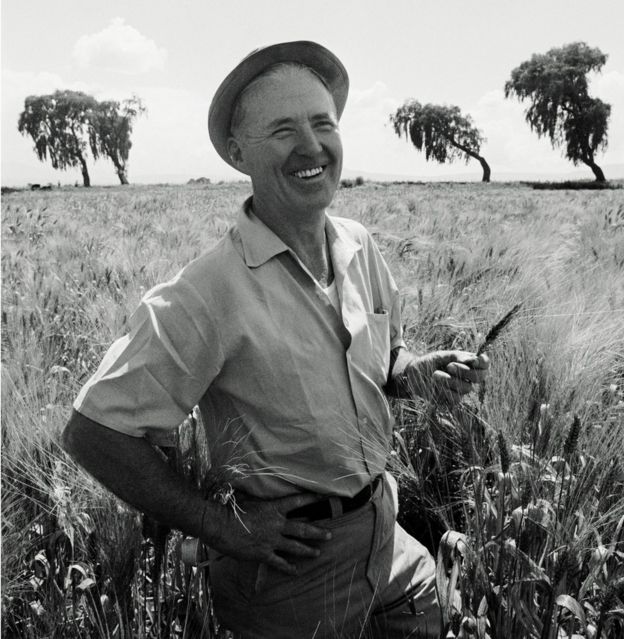 |
| Getty Image: Norman Borlaug |
1968, Stanford biologist Paul Ehrlich published an explosive book. In The Population Bomb, Ehrlich noted that in poor countries such as India and Pakistan, populations were growing more quickly than food supplies. In the 1970s, he predicted: "Hundreds of millions of people are going to starve to death".
Thankfully, Ehrlich was wrong, because he didn't know what Norman Borlaug had been doing.... he could cross the varieties which had some good traits, and hope that one of the cross-breeds would happen to have all the good traits and none of the bad. It was painstaking work, but eventually it paid off. Borlaug produced new kinds of "dwarf" wheat that resisted rust, yielded well, and - crucially - had short stems, so they didn't topple over in the wind. ,,,,
and to plant it, he had to fight "traditional" ways of planting, or the idea that "this is how we always did it": but it worked.
,Paul Ehrlich, now in his 80s, maintains that he wasn't so much wrong, as ahead of his time. Perhaps if Malthus were still alive, in his 250s, he'd say the same. But could more human ingenuity be the answer?
this is the argument behind the global warming/ecology/green fanatics: they posit two scenarios: one is we're all gonna die if you don't do as we tell you to, and the other is a green utopia.
But of course there are always other alternatives. And Utopian ideas have killed hundreds of million people in the 20th century...
And yes, I am for living simply and not polluting, but this doesn't mean I will give up my airconditioner.

No comments:
Post a Comment